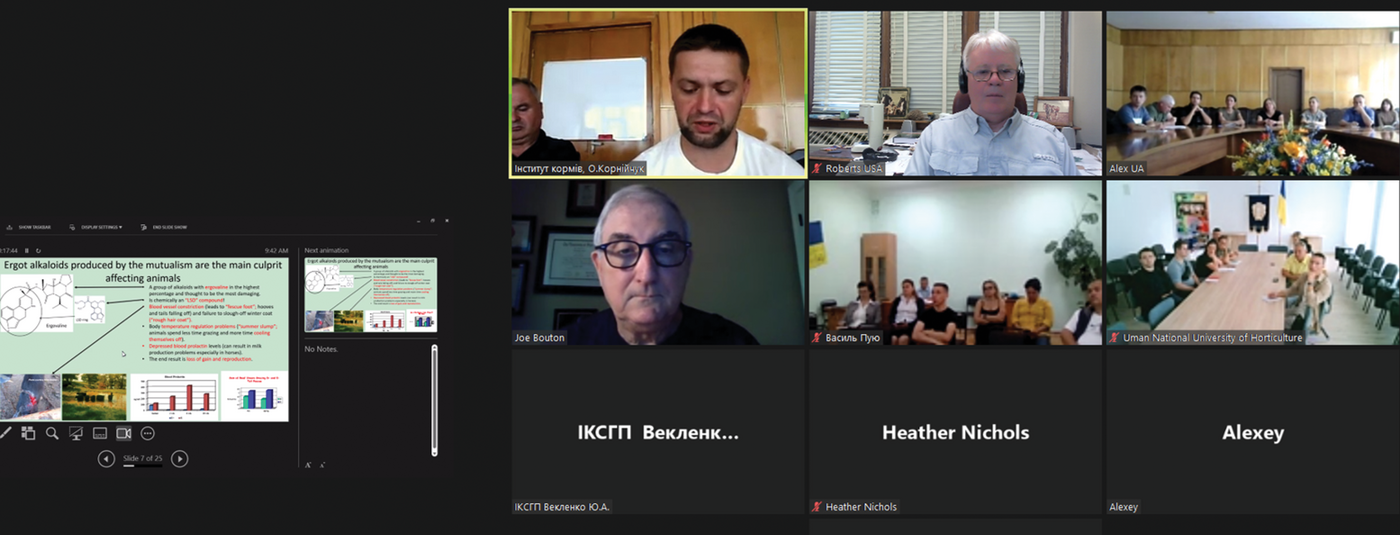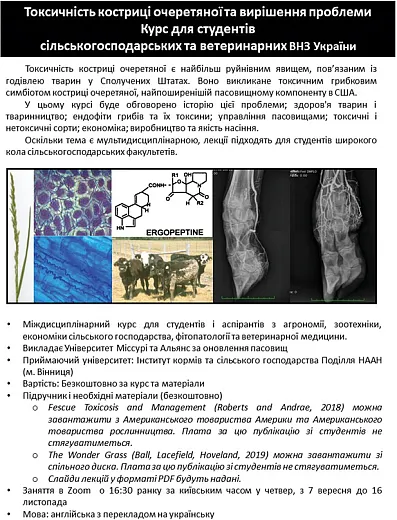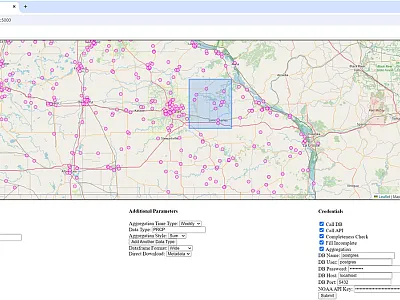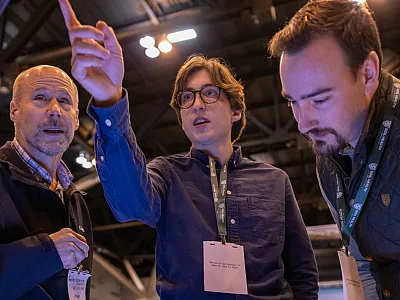Society Members Develop, Teach Course to Ukrainian Students

In May 2022, Volodymyr Zelenskyy held a Zoom call with 60+ American universities. Within his message was a request for American professors to donate their time and help Ukrainian students finish their college degrees during the war.

In the fall of 2023, a course was launched and taught virtually to students at three universities in Ukraine: Podillia State University, Podillia Institute of Fodder and Agriculture, and Uman National University of Horticulture. The course, “Fescue Toxicosis and Management,” was led by the University of Missouri and co‐taught with faculty from North Carolina State University, Virginia Tech University, and the University of Georgia. These universities and their faculty are part of the Alliance for Grassland Renewal (grasslandrenewal.org), a non‐profit organization that works with government and industry stakeholders to replace toxic Kentucky 31 tall fescue with cultivars that contain a novel endophyte.
Students received materials written by faculty at the University of Missouri, Clemson University, Auburn University, the University of Kentucky, and the University of Georgia. Most of the authors were members of the Societies. Their materials included the ASA and CSSA publication, Fescue Toxicosis and Management (https://bit.ly/3ZbdURz; Roberts & Andrae, 2018). They also included The Wonder Grass (https://bit.ly/3ufetA7; Ball, Lacefield & Hoveland, 2019), published by the Oregon Tall Fescue Commission. Materials were provided at no cost to the students.
Professors lectured in English with live translation into Ukrainian. Prior to the lecture, they provided a script to expedite the translation.
In the U.S., such a course would be listed in the catalogue as “Special Problems” and assigned 1 credit hour. In Ukraine, students received credit by a certificate that acknowledged their completion of the course.
Humanitarian Effort
The initial purpose of the course was to fulfill the request from President Zelenskyy—to help Ukrainian college students. It taught Ukrainian students about a real‐life, pervasive, and complex problem in the U.S. that could only be addressed with a multi‐disciplinary team of plant and animal scientists and with agricultural economists. During the class, a secondary purpose emerged. As students, faculty, and their farm families became aware fescue toxicosis, they will hopefully avoid planting toxic tall fescue when they reclaim their land after the war.
This course served as a pilot. It provided a successful model for teaching additional courses in Ukraine, assuming the faculty in Ukraine saw the benefit.
Teaching this course was humanitarian in nature. It was not political. Nor was it militant. It was volunteer work, and our professors received no pay or plaques.
Members Forum is a place to share opinions and perspectives on any issue relevant to our members. The views and opinions expressed in this column are not necessarily those of the publisher. Do you have a perspective on a particular issue that you’d like to share with fellow members? Submit it to our Members Forum section at news@sciencesocieties.org. Submissions should be 800 words or less and may be subject to review by our editors‐in‐chief.
Text © . The authors. CC BY-NC-ND 4.0. Except where otherwise noted, images are subject to copyright. Any reuse without express permission from the copyright owner is prohibited.







